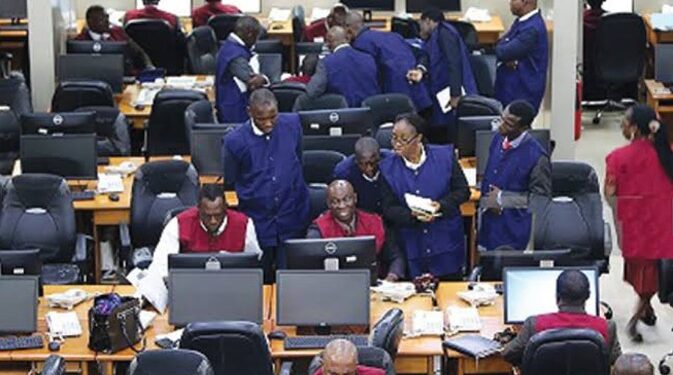business
CBN Steps In With Dollar Supply as Global Tariff Shocks Rattle Nigerian Currency

The Central Bank of Nigeria (CBN) has injected nearly $198 million into the official forex market to cushion the naira from 4mounting pressure caused by rising global trade tensions and falling oil prices.
The move came as the naira depreciated sharply last week, driven by a new wave of U.S. tariffs that disrupted global markets and sparked investor unease across emerging economies. Between April 2 and April 4, the local currency slipped by over N35, closing at N1,567.02 per dollar at the Nigerian Foreign Exchange Market.
In a statement signed by Omolara Omotunde Duke of the bank’s Financial Markets Department, the CBN said the intervention is part of broader efforts to keep the forex market liquid and functional. It emphasized the need to maintain transparency and order amid fast-changing global economic conditions.
On the parallel market, the naira also weakened to around N1,565 per dollar, down by N15 within the same period. Analysts believe this latest dollar injection may signal the beginning of a series of stabilizing actions if economic volatility continues.
Tariffs, Oil Slump Deepen Pressure
Nigeria, a major oil-dependent economy, felt the ripple effect of a global commodities downturn. Brent crude fell by 3.2%, settling at $72.52 per barrel, while the U.S. benchmark, WTI, dipped below $70. Nigeria’s Bonny Light crude followed suit, trading down 12% to roughly $65.50 per barrel.
The market jitters were largely triggered by U.S. President Donald Trump’s latest tariff escalation on imports from economic giants like China and the EU. This shift in U.S. trade policy stirred risk aversion and further strained vulnerable currencies like the naira.
Adding to the pressure, Nigeria recently ended its Naira-for-Crude policy, which had allowed domestic refineries to buy crude oil using the local currency. The initiative, introduced in October 2024, aimed to reduce reliance on the dollar and improve product availability. But with the agreement lapsing on March 31, refineries now find themselves back in competition with fuel importers for scarce dollars.
Analysts Warn of Tougher Days Ahead
Experts from Afrinvest Securities say the end of the Naira-for-Crude deal, coupled with Trump’s aggressive tariff stance, contributed significantly to last week’s naira slump. They predict that unless Nigeria benefits from an unexpected surge in oil prices or inflows of foreign investment, the currency may face continued stress.
Although geopolitical tensions—particularly involving Iran, Russia, and fresh U.S. tariffs on Venezuela’s oil—could push oil prices upward in the near term, analysts caution that such gains might not be enough to stabilize Nigeria’s foreign reserves.
As of April 2, Nigeria’s external reserves dropped slightly to $38.17 billion, down from $38.30 billion on March 28. Observers say further declines are likely unless economic conditions improve quickly.



